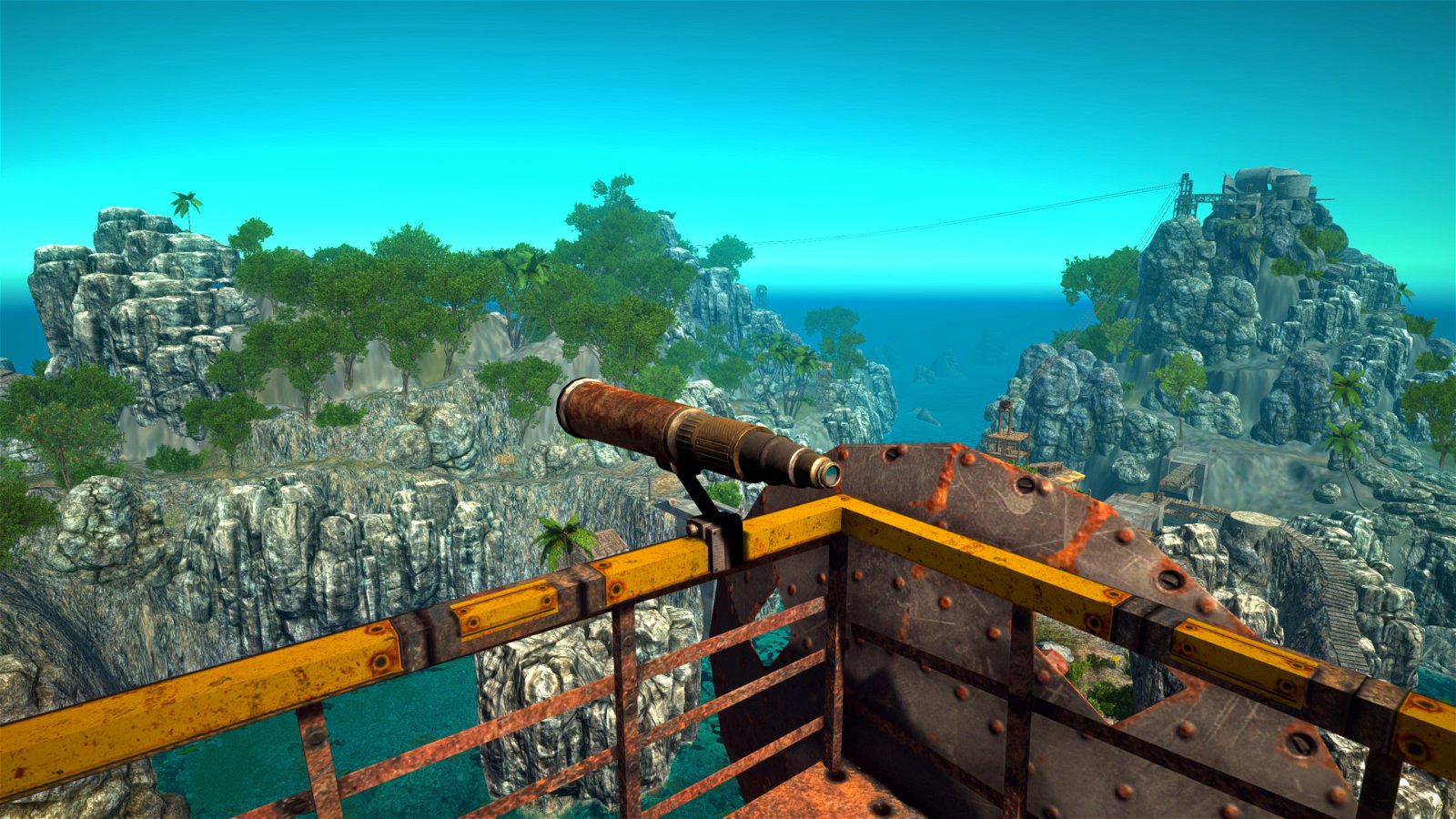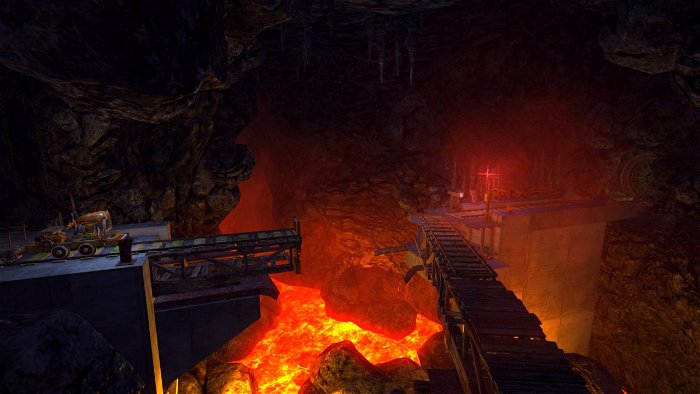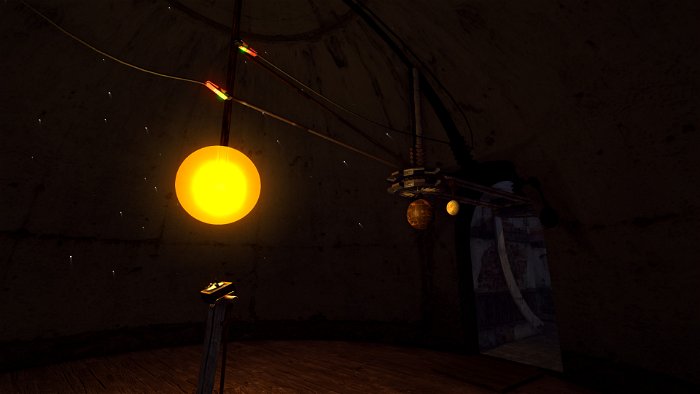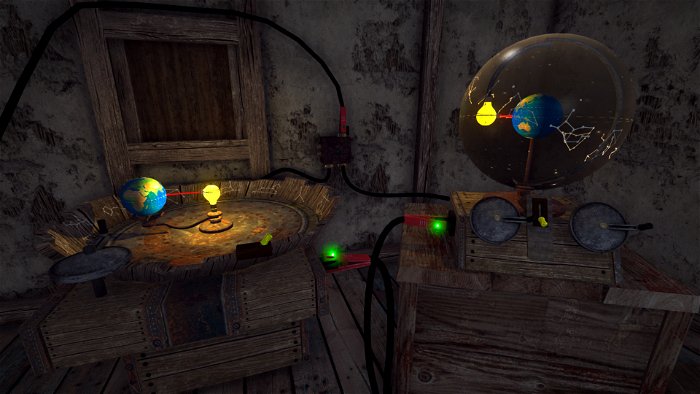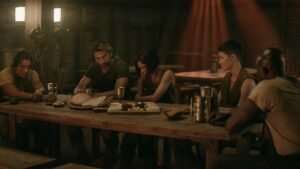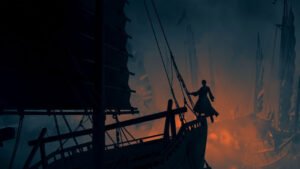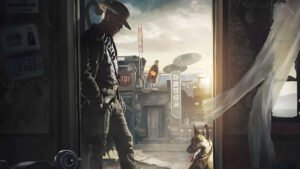As technology evolves alongside education, we gain the ability to shift from classical deeply ingrained teaching methods to something better.
No longer are teachers beholden to out-dated and old-fashioned systems of instruction when it comes to covering the history and philosophy of science. Children are now born into a world where interacting with technology is second nature, and Omkar Deshpande and Vivek Kaul of The Young Socratics have set out to take advantage of this.
Their new game, Odyssey, combines education and entertainment to teach students about the history of science in an engaging, interactive series of adventures. Odyssey takes a Myst-like approach to helping kids learn classic scientific and mathematical philosophies, letting students discover and use these ideas in an intuitive, historically accurate way rather than just cramming formulas into their brains. Deshpande and Kaul want their game to be the start of a new method of teaching old ideas that will make sense in both historical and modern contexts. CGMagazine spoke with them about the game, where the ideas came from, and what they hope to accomplish.
CG Magazine: What was the evolution of Odyssey?
Omkar Deshpande: The idea for Odyssey goes back about two years: we had been teaching middle school kids here in the Bay Area, and the approach we were using to teach math and science to them was a Historic Philosophical (HP) approach. We were presenting the ideas the way they were invented by the great minds of the past instead of just telling [them] what the final forms of the theories or the laws look like in the form of equations, which is generally how math and science are taught in schools.
We saw that the response to this HP approach was quite good.The question was how to scale it, how to make something that would allow us to reach beyond a limited classroom and our 15 kids. …That’s when we thought, “well we could take a HP approach to science and combine it with storytelling and gaming”. Storytelling and gaming are independently engaging for kids, so then we would have three different components to a product, and we could bring those three together in a single experience. We felt that would increase the [level of] engagement many fold.
That’s where we thought if we could draw upon elements from puzzle adventure games like Myst, [from] the kinds of stories that we ourselves had read when we were that age, … [and from the sorts of stories] kids read nowadays, and combine those with a HP approach to science, [then] we could build a unique product which would also be aligned with the spirit of the next gen science standards, and also, hopefully, be entertaining and a very different way to learn science.
CGMagazine: How do you make a game that is both educational and also engaging from a gameplay perspective?
Omkar Deshpande: The educational aspect is the HP approach, as we said; the storytelling and gaming side were independently conceived by us. A lot of effort was put into developing the story with the help of Eric, and a lot of effort was put into the puzzle design and the game development itself. That’s where we hired Jason Miller who had worked on Call of Duty and some other games- [a] very experienced dev. By having Eric and Jason work with us closely, we felt we achieved a good balance between education and entertainment.
One of the ways we do that practically in the game is…the entire game can be thought of as a linear sequence of chunks, and within each chunk what the player has to do is explore around, [and] discover a journal fragment. The entire journal that was written is carved into a sequence of fragments by the character in the game. The player’s job is to first discover each fragment, and with each one the player …[uncovers] a bit of the story of the game and also a little bit of the science [they are supposed to learn]. Then, in that local environment, the player encounters a puzzle to which that science content is to be applied. The understanding of that piece of science is tested by that puzzle. Once the puzzle is solved, the player … unlocks the path or the key to the next portion of the island. That’s how we weave together these three components throughout the game.
CGMagazine: What philosophies, discoveries, and disciplines, were you adamant be in Odyssey, and did any get cut for one reason or the other?
Omkar Deshpande: We wanted to start from a blank slate. We wanted to assume the player does not have any pre-requisite knowledge of science. Since the origins of science lie in ancient astronomy, we decided to start from the ancient Greek world, and then build up the scientific inventions one by one or the ideas, and build an edifice, so in the way [when] you are constructing one floor of that edifice, all the foundations for it have already been established. It’s like the Euclidian approach to Geometry: when you come to theorem 10 of Euclid’s elements, you’re only relying on a self-evident set of axioms and the theorems one to nine that should have already been proven. You don’t rely on something that is to be established later.
So that’s the approach we followed, and we wanted to go all the way up to Newtonian physics, starting from ancient astronomy, through the ancient Greek world, through the Renaissance, up to the scientific revolution. It’s one of the most important stories in the history of human civilization, ending with [the] Newtonian laws of motion and the law of universal gravitation. But we couldn’t really get to that point, because we had to put our own money into completing the game, and after a year and a half we had exhausted our savings… [E]ven though the first draft of the journal has been written up to Newtonian physics, game development would have required twice as much [money] as we had already put in. Because of that, we had to release whatever was built as the first three chapters of the game, and we [have] said that we will release the next three chapters if we get funding or sufficient revenue from the first game.
CGMagazine: How did you find the Kickstarter experience?
Omkar Deshpande: We were new to that experience, and what we found was that a significant amount of planning is needed to actually get a good Kickstarter campaign going, including the prep of the KS and video and prepping a mailing list of people already interested in your product. Initially, most of the traffic you can get for the KS has to be your own. Only when you reach your sufficient threshold do KS internal users start to come to you. We had to focus a lot of our effort initially on our network, and then, after that, to expand the network, we looked into game communities which are looking at adventure games, and then we also looked at science forums and science teaching forums, [because] there are science teachers and students and parents who are actually interested in science. Most important was the home schooling community, because we had been teaching home schoolers as part of our classes, and many of the ideas of how we should come up with the models to be used in the game came out of the classes we taught to homeschoolers. Alongside KS we also did a Steam Greenlight.
Initially our target was towards middle school students, but we found that there are some science enthusiasts who are interested in puzzle adventure games even in adulthood. They want to play with their kids because the material we cover in this game is not known to many adults, either because they learned science in a different way, [or] they didn’t go into its historical evolution. When we go back to the Steam Greenlight, most of the people who ordered are adults, and we also had an Early Access since Feb 23, so you can see the reviews which came to us through Early Access, most have been positive. The difficulty with the Indie game community is that it’s very fragmented. It’s hard to get enough exposure towards your game unless you have a lot of budget. That has been the challenge we are working on, whatever exposure we got …[yielded] good reviews. Now the question is whether there are enough adults interested in the game or if we should only focus on the educational markets.
CGMagazine: How did you get someone like Noam Chomsky to play your game?
Omkar Deshpande: Actually I had been corresponding with him for some time and he is generally interested in the philosophy and history of science. …[W]e had shown him certain things which we were doing in our classes, and after that we sent him the journal we had made which emphasizes this whole intellectual journey, and he looked at the journal and he just gave his endorsement after that. But I had been in touch with him for some years. Also you can see we were also in touch with David Mumford, who is a field medalist and national medal of science winner, and he has also written for us. The quality of the content we cover is [so high because] we made sure we were talking to academics as well …[making] sure it was as accurate as possible and still easy for people to understand, so [we] were trying to do that as well.
CGMagazine: Final thoughts, anything to add?
Omkar Deshpande: We feel like we’ve created something unique and I don’t think there is a game like this—that much we feel quite confident about. What we don’t know right now is whether we [will] get enough exposure for people to use it and actually impact how science is taught in the country. Our hope is that we will find some avenues, whether through philanthropists or gov’t grants or funding of some kind to allow us to keep making more games.
